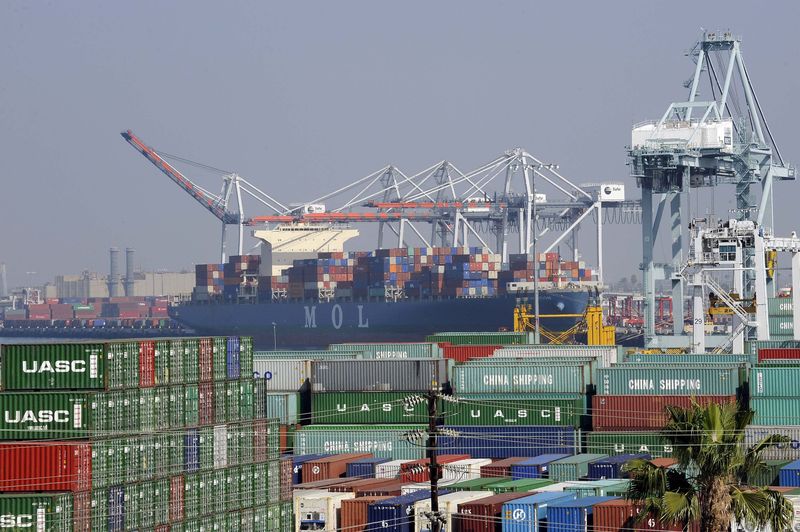By Christine Kim
SEOUL (Reuters) - South Korean exports fell for a sixth straight month in June, ramping up pressure on policymakers as they scramble to inject billions of dollars worth of fresh stimulus into an economy reeling from a one-two punch of weak consumer spending and slack global demand.
Exports from Asia's fourth-largest economy fell 1.8 percent in June from a year earlier to $47.0 billion, while imports slumped 13.6 percent to $36.7 billion, the Ministry of Trade, Industry and Energy said, producing a record trade surplus of $10.2 billion.
A Reuters survey had forecast exports to have fallen 1.0 percent in June and imports were seen down 8.7 percent.
The ministry said trade conditions in the second half of 2015 are expected to improve with new car and handset model releases, but exports face external risks from China and the euro zone.
"We'll keep seeing falls in exports throughout the third quarter which will be inevitable due to the debt crisis in Greece and sluggishness in China," said Park Sang-hyun, chief economist at HI Investment & Securities.
A breakdown of exports per destination showed exports to the U.S. and China rose in June, reversing months of falls, while shipments to the EU marked a sixth straight month of declines.
To shore up a sputtering economy, the government will move a supplementary budget worth around 15 trillion won (8.54 billion pounds) to parliament by July 6. An official from the ruling Saenuri Party said on Wednesday the party hopes the budget will pass parliament before July 20.
The outbreak of the deadly Middle East Respiratory Syndrome since late May and the absence of a pick up in shipments have already prompted some analysts to trim their economic growth forecast for this year.
The Bank of Korea last month cut interest rates for the second time this year, and some analysts expect another cut in coming months to spur growth towards the government's target of 3.1 percent for 2015.
Finance Minister Choi Kyung-hwan voiced concerns earlier last month that second-quarter growth may be below 1 percent in sequential terms.
Earlier on Wednesday, data showed consumer prices rose 0.7 percent in June on-year, a five-month high. Core inflation eased to 2.0 percent in annual terms, from 2.1 percent in May.
The finance ministry said that inflation will start trending up in the second half of the year as base effects from low global oil prices from 2014 subside.
The ministry has forecast inflation at 0.7 percent in 2015.
